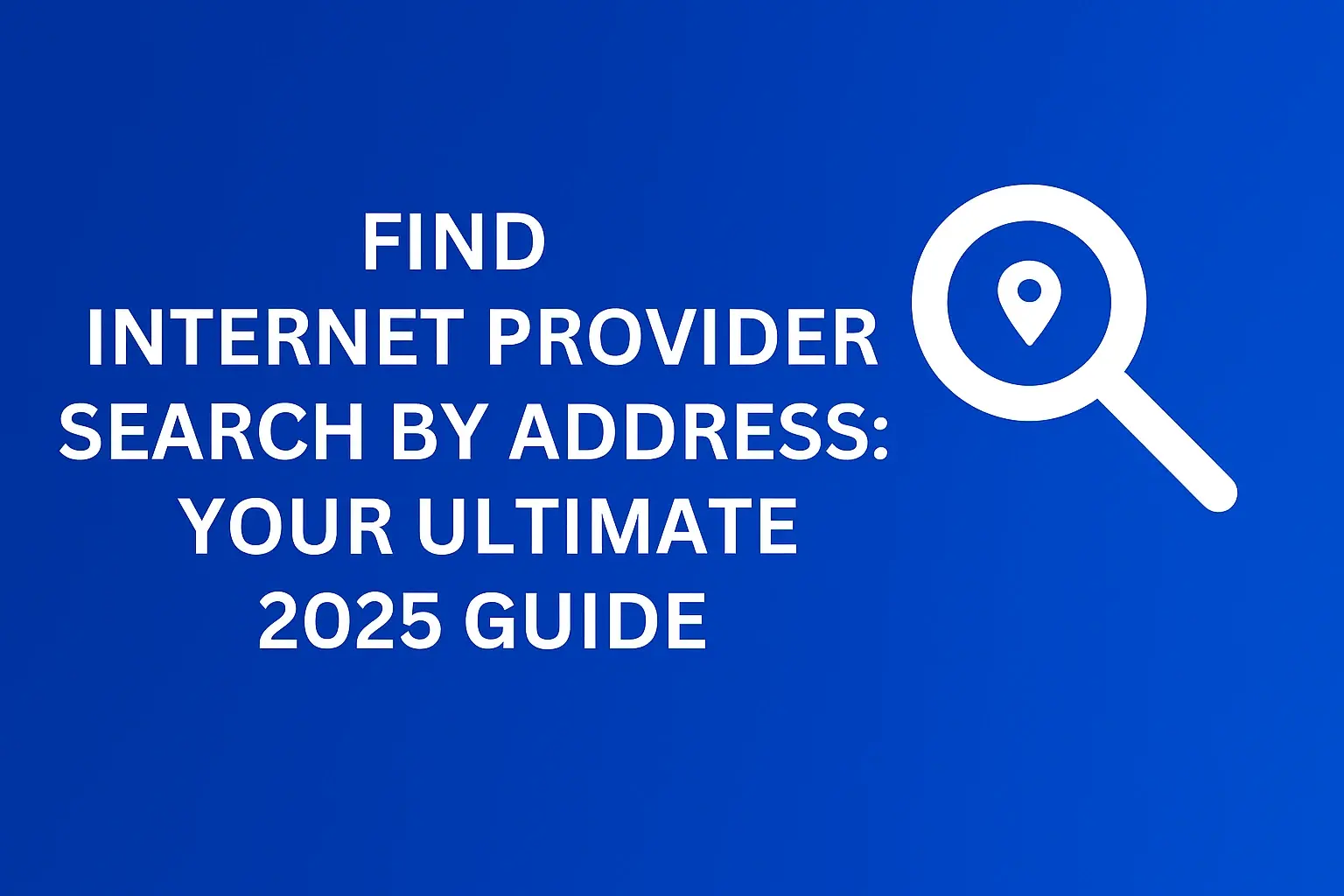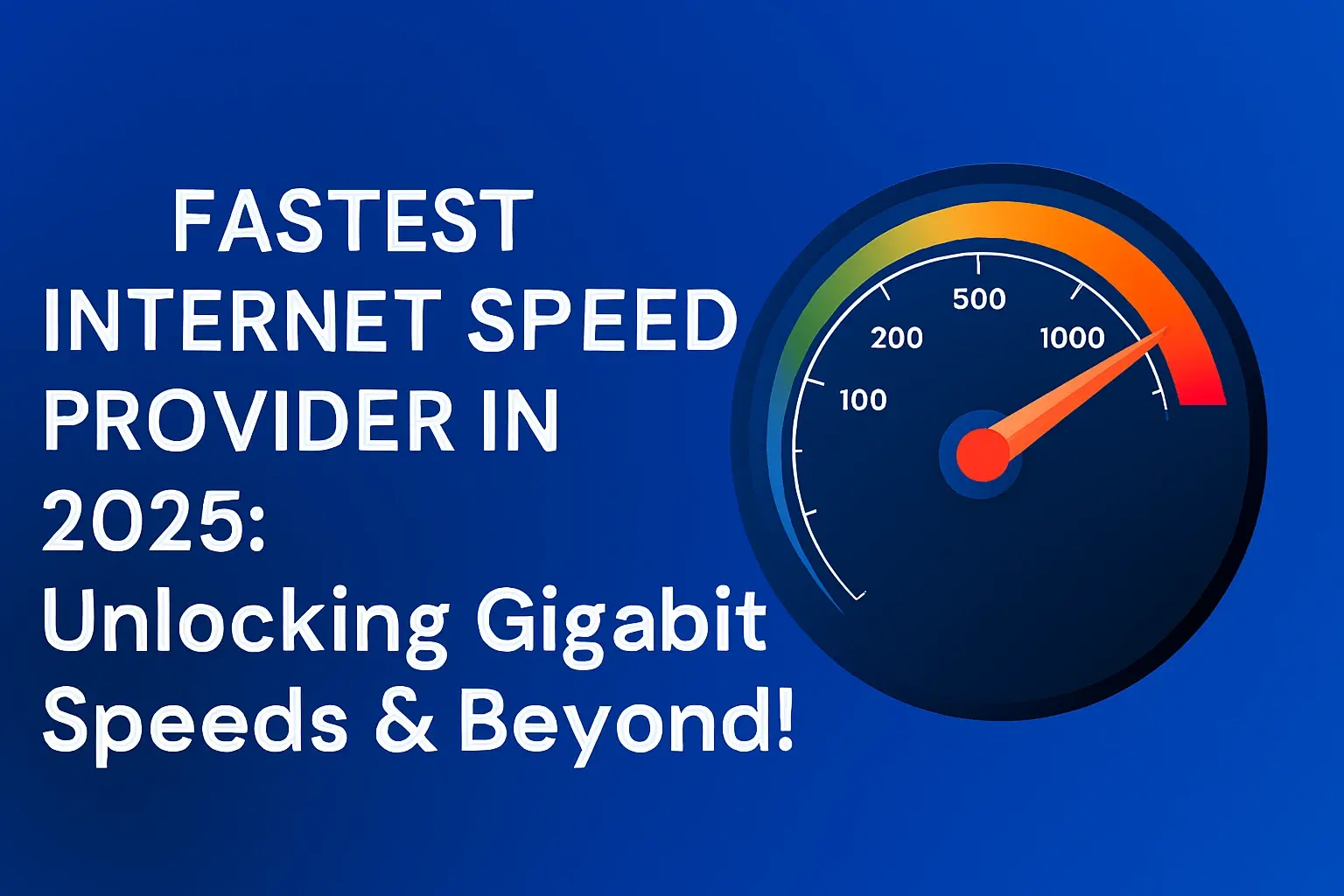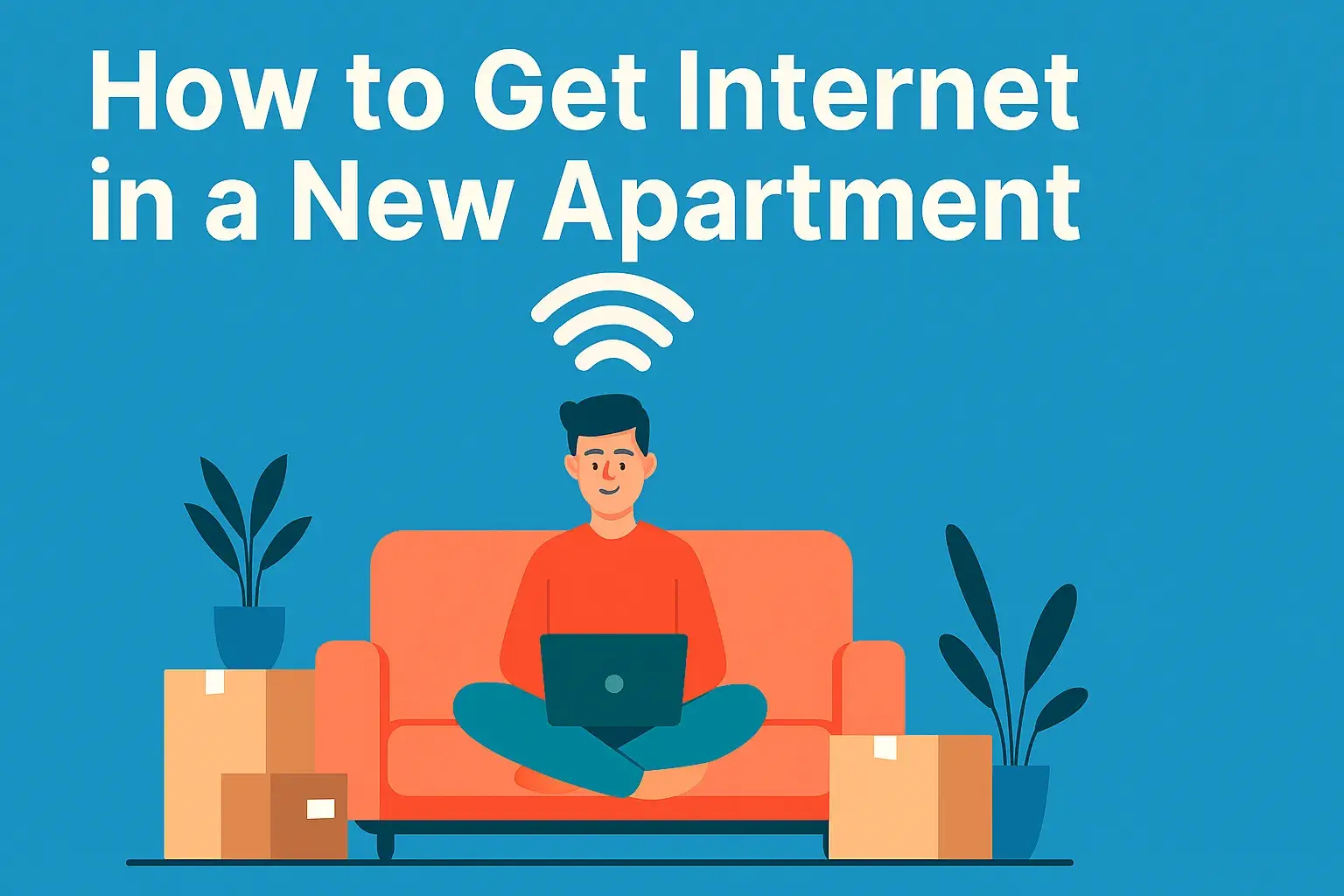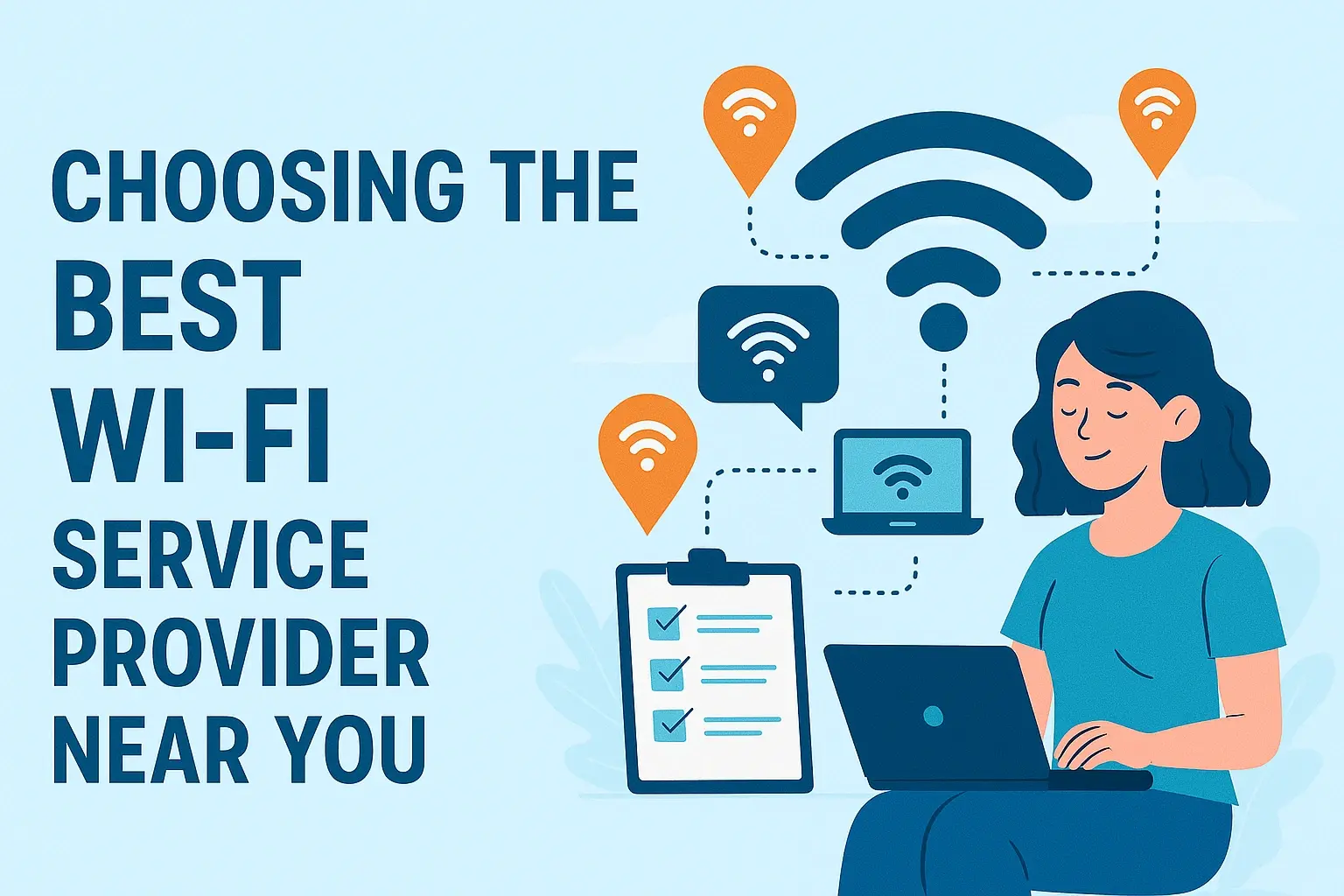Internet Providers North Las Vegas NV: Connecting You to the Web

Finding the right internet provider in North Las Vegas, NV, is crucial for seamless connectivity. This guide explores your options, helping you choose a plan that balances speed, reliability, and cost for your home or business needs.
Understanding Your Internet Needs
Before diving into the specifics of internet providers in North Las Vegas, NV, it's essential to assess your household's or business's unique requirements. The "best" internet plan is highly subjective and depends on several factors. Consider how many people will be using the internet simultaneously, the types of activities they engage in (streaming, gaming, remote work, basic browsing), and the number of devices connected. For instance, a household with multiple gamers and remote workers will have vastly different needs than a single individual who primarily uses the internet for email and occasional web browsing.
In 2025, the digital landscape continues to evolve, with more devices becoming "smart" and integrated into our daily lives. The Internet of Things (IoT) is expanding, meaning even simple tasks can require a stable internet connection. Understanding these usage patterns will help you determine the necessary download and upload speeds, data caps, and overall service quality. This foundational step ensures you're not overpaying for services you don't need or underserving your digital demands.
Assessing Household Usage
For a typical family in North Las Vegas, common internet activities include:
- Streaming high-definition (HD) or 4K video on multiple devices.
- Online gaming, which requires low latency and consistent speeds.
- Video conferencing for remote work or school.
- Smart home device operation (thermostats, security cameras, voice assistants).
- General web browsing, social media, and email.
Each of these activities places different demands on your internet connection. Streaming 4K video, for example, can consume significant bandwidth, while online gaming is more sensitive to latency (the delay between sending and receiving data). A robust internet plan should accommodate the most demanding activities without compromising the experience of other users.
Business Internet Requirements
Businesses in North Las Vegas have even more critical needs. Dependable, high-speed internet is not a luxury but a necessity for operations. Key considerations for businesses include:
- Reliability and uptime guarantees.
- Symmetrical upload and download speeds for cloud services and large file transfers.
- Dedicated IP addresses for servers or specific applications.
- Enhanced security features.
- Scalability to accommodate business growth.
For businesses, the cost of an internet outage can far outweigh the monthly service fee, making reliability a paramount concern. Exploring business-specific plans from providers is often recommended.
Major Internet Providers in North Las Vegas, NV
North Las Vegas, NV, is served by a variety of internet providers, each offering different technologies and service packages. The competitive landscape ensures that residents have choices, but it also necessitates careful comparison. Understanding which providers operate in your specific area is the first step. Major players often include national cable and fiber optic companies, as well as potentially smaller, local providers.
In 2025, the availability of different internet technologies can vary significantly even within the same city. Fiber optic internet is increasingly becoming the gold standard for speed and reliability, but its availability is often concentrated in newer developments or areas with significant infrastructure investment. Cable internet remains a widely available and strong contender, offering a good balance of speed and price for most users. Digital Subscriber Line (DSL) is typically available in most areas but offers lower speeds compared to cable and fiber. Fixed wireless and satellite options can be crucial for those in underserved or rural pockets, though they come with their own set of trade-offs.
When researching providers, always verify their serviceability at your exact address. Websites of major providers usually have an address checker tool. Additionally, consider consulting local forums or asking neighbors about their experiences with different providers in your immediate vicinity. Word-of-mouth can be invaluable in assessing real-world performance and customer service quality.
Provider Availability Checker
To find out which providers are available at your North Las Vegas address, you can typically use the following methods:
- Provider Websites: Visit the official websites of major providers like Cox, CenturyLink, and others serving the Las Vegas metropolitan area. Look for an "Internet Availability" or "Check Service" tool.
- Third-Party Comparison Sites: Several reputable websites aggregate internet provider information and allow you to search by zip code or address. These can offer a quick overview of available options.
- Contacting Providers Directly: If you're unsure, a phone call to a provider's customer service line can help confirm serviceability.
Key Providers in the Region
While specific availability varies, the following providers are generally prominent in the North Las Vegas area:
- Cox Communications: Known for its robust cable internet network, Cox often offers high-speed plans and a variety of bundles including TV and phone services. They are a dominant player in many parts of Nevada.
- CenturyLink (now Quantum Fiber): While historically known for DSL, CenturyLink has been expanding its fiber optic network under the Quantum Fiber brand. Availability of their fiber services is growing.
- AT&T: While more prevalent in other parts of the country, AT&T may offer DSL or fixed wireless services in select areas of North Las Vegas.
- Satellite Providers (e.g., Viasat, HughesNet): These are typically options for areas where terrestrial broadband is not available. They are generally slower and have higher latency than cable or fiber.
- Fixed Wireless Providers: Local or regional fixed wireless providers might offer services, especially in areas with less traditional broadband infrastructure.
Fiber Internet: The Future of Connectivity
Fiber optic internet is widely considered the pinnacle of broadband technology in 2025. It utilizes thin strands of glass or plastic to transmit data as pulses of light, offering unparalleled speed, reliability, and latency. Unlike cable or DSL, which transmit data as electrical signals over copper wires, fiber is immune to electromagnetic interference, leading to a more stable connection.
The primary advantage of fiber is its symmetrical upload and download speeds. This means that uploading large files, streaming in high quality, or participating in video conferences is just as fast as downloading content. This is a significant differentiator for businesses and power users. Furthermore, fiber networks have a much higher capacity to handle increasing data demands, making them future-proof as technology continues to advance.
While fiber availability in North Las Vegas is growing, it's not yet ubiquitous. Providers are investing heavily in expanding their fiber infrastructure, but deployment can be a costly and time-consuming process. If fiber is available at your address, it is often the most recommended option for those seeking the best possible internet experience.
How Fiber Works
Fiber optic cables consist of extremely thin strands of glass or plastic. Data is converted into light signals and transmitted through these strands at incredible speeds. The light pulses are then converted back into data at the receiving end. This method is far more efficient and faster than transmitting electrical signals through copper wires, which are susceptible to signal degradation over distance and interference.
Benefits of Fiber Internet
- Unmatched Speeds: Download and upload speeds can reach gigabits per second (Gbps), significantly faster than other technologies.
- Low Latency: Ideal for online gaming, real-time applications, and video conferencing.
- High Reliability: Less prone to weather disruptions and electromagnetic interference.
- Symmetrical Speeds: Upload and download speeds are often equal, crucial for content creators and businesses.
- Future-Proof: The infrastructure can handle increasing data demands for years to come.
Fiber Availability in North Las Vegas
As of 2025, fiber optic internet is expanding in North Las Vegas, particularly in newer residential developments and some commercial areas. Providers like Cox and Quantum Fiber (CenturyLink) are leading the deployment. To check for fiber availability at your specific address, you will need to use the online tools provided by these companies or reputable third-party comparison websites. The expansion of fiber is an ongoing process, so it's worth rechecking periodically if it's not yet available.
Cable Internet: A Reliable Staple
Cable internet has been a mainstay for broadband connectivity for decades and remains a strong and widely available option for many residents in North Las Vegas. It utilizes the same coaxial cable infrastructure that delivers cable television. Cable internet offers a good balance of speed, affordability, and availability, making it a popular choice for a broad range of users.
In 2025, cable internet providers continue to upgrade their networks using technologies like DOCSIS 3.0 and DOCSIS 3.1, which allow for significantly higher speeds. While download speeds are typically much faster than upload speeds (asymmetrical), they are often sufficient for most household activities, including streaming HD and 4K content, online gaming, and general internet use. The primary provider of cable internet in North Las Vegas is Cox Communications, which offers a comprehensive range of plans.
One of the main advantages of cable internet is its widespread availability. If fiber isn't an option, cable is often the next best choice in terms of performance and reliability. However, it's important to note that cable internet is a shared network. This means that during peak usage hours, when many people in your neighborhood are online, your speeds might experience some slowdowns. This is less of an issue with newer DOCSIS standards but can still be a factor.
How Cable Internet Works
Cable internet transmits data through coaxial cables, the same type used for cable TV. A cable modem connects your home network to the provider's network. Data is sent and received using radio frequency signals that travel through the cable lines. While effective, this method is susceptible to signal degradation over distance and can experience congestion when many users in a neighborhood are online simultaneously.
Advantages of Cable Internet
- Wide Availability: Accessible in most urban and suburban areas.
- Good Download Speeds: Capable of delivering speeds sufficient for streaming, gaming, and general use.
- Competitive Pricing: Often offers a good value for the performance provided.
- Bundling Options: Frequently available as part of bundles with TV and phone services.
Disadvantages of Cable Internet
- Asymmetrical Speeds: Upload speeds are typically much slower than download speeds.
- Shared Network: Performance can be affected by neighborhood congestion during peak hours.
- Signal Degradation: Performance can sometimes be impacted by the distance from the provider's hub.
Cox Communications in North Las Vegas
Cox Communications is the primary cable internet provider serving North Las Vegas. They offer a range of plans with varying speeds, data allowances, and pricing. Their network is extensive, providing reliable service to a large portion of the city. When considering Cox, pay attention to their promotional pricing, which often applies for the first 12-24 months, and the standard rates that follow. Understanding these long-term costs is crucial for budgeting.
DSL Internet: A Budget-Friendly Option
Digital Subscriber Line (DSL) internet is one of the older forms of broadband technology, utilizing existing telephone lines to transmit data. In 2025, DSL is generally considered a more budget-friendly option and is widely available, often serving areas where cable or fiber infrastructure is not present. While it's not as fast as cable or fiber, it can be a viable solution for users with more modest internet needs or those on a tight budget.
The speed of DSL is highly dependent on the distance between your home and the provider's central office. The farther away you are, the slower the speeds will be. This is a significant limitation compared to cable and fiber, which are less affected by distance. Upload speeds for DSL are also typically quite slow, making it less ideal for activities that require significant uploading, such as remote work with large file transfers or streaming to platforms like Twitch.
In North Las Vegas, CenturyLink (now also operating under the Quantum Fiber brand for its fiber services) is a prominent provider of DSL internet. While they are actively expanding fiber, their DSL network remains a key offering, especially in areas where fiber deployment is still in progress. When considering DSL, it's crucial to manage expectations regarding speed and performance, especially for bandwidth-intensive activities.
How DSL Internet Works
DSL uses the copper telephone lines that are already installed in most homes. It operates on frequencies that are separate from voice calls, allowing you to use your phone and the internet simultaneously. A DSL modem connects your devices to the telephone line, which then connects to the provider's network. The closer you are to the provider's central office, the better the speeds you can achieve.
Pros and Cons of DSL
Pros:
- Wide Availability: Often available where other broadband options are not.
- Affordability: Generally one of the cheapest internet options.
- Simultaneous Use: Can be used at the same time as a landline phone.
Cons:
- Slower Speeds: Significantly slower than cable and fiber, especially for uploads.
- Distance Dependent: Speeds decrease with distance from the provider's central office.
- Limited Bandwidth: May struggle with multiple high-bandwidth activities simultaneously.
CenturyLink DSL in North Las Vegas
CenturyLink offers DSL internet plans in North Las Vegas, often marketed as a reliable and affordable choice. Their service is particularly relevant for those in areas not yet covered by fiber or high-speed cable. When evaluating CenturyLink DSL, pay close attention to the advertised speeds and compare them against your actual needs. It's also wise to inquire about any data caps or throttling policies that might apply to their DSL plans.
Fixed Wireless and Satellite Alternatives
For residents in North Las Vegas who find themselves in areas underserved by traditional cable or fiber networks, fixed wireless and satellite internet offer alternative solutions. These technologies have unique advantages and disadvantages and are best suited for specific circumstances.
Fixed Wireless Internet uses radio waves to connect your home or business to a nearby tower. It requires a clear line of sight between your premises and the tower. This technology can offer speeds comparable to DSL or even lower-tier cable plans, but its performance can be affected by weather conditions and obstructions. Providers of fixed wireless can vary, and it's worth researching local companies that may offer this service in your specific North Las Vegas neighborhood.
Satellite Internet, provided by companies like Viasat and HughesNet, beams internet signals from a satellite in orbit down to a dish installed at your home. This is often the only option for very remote locations. However, satellite internet is known for its high latency, which makes real-time applications like online gaming and video conferencing challenging. Speeds can also be slower than other terrestrial options, and data caps are common. In 2025, while satellite technology is improving, it generally remains a last resort for those without other viable broadband choices.
Fixed Wireless Explained
Fixed wireless internet involves a small antenna installed at your home that communicates wirelessly with a base station or tower. This is a point-to-point or point-to-multipoint technology. It's a good option for areas where laying cable is cost-prohibitive. The key requirement is a clear line of sight between your antenna and the provider's tower.
- Pros: Can offer decent speeds in areas without cable/fiber, often more affordable than satellite.
- Cons: Requires line of sight, susceptible to weather, speeds can vary.
Satellite Internet: Pros and Cons
Satellite internet is delivered via signals from space. A satellite dish at your location communicates with a satellite, which then communicates with a ground station connected to the internet backbone.
- Pros: Available almost anywhere with a clear view of the sky, ideal for remote locations.
- Cons: High latency (delay), slower speeds compared to other options, often strict data caps, can be affected by weather.
For North Las Vegas residents, these options should be explored only after confirming the unavailability of cable or fiber. Always check for local fixed wireless providers, as they may offer a better experience than national satellite providers.
Comparing Plans: What to Look For
Selecting the right internet plan in North Las Vegas requires a careful comparison of various factors beyond just advertised speeds. In 2025, consumers have more options than ever, making it crucial to understand the nuances of each plan to avoid hidden costs or inadequate service.
The most critical elements to compare are download speeds, upload speeds, data caps, contract terms, and monthly pricing. Understanding your specific usage needs, as discussed earlier, will guide your decision-making process. For example, if you frequently upload large video files or use cloud storage extensively, symmetrical upload speeds offered by fiber will be a significant advantage. If you're a casual user who primarily browses and streams, high download speeds from cable might be sufficient.
Data caps are another important consideration. Some providers impose limits on the amount of data you can download or upload per month. Exceeding these caps can result in extra charges or throttled speeds. Fiber and some cable plans in 2025 are increasingly offering unlimited data, which is ideal for heavy users. DSL and satellite plans are more likely to have data caps.
Finally, always look beyond the introductory promotional pricing. Many providers offer attractive rates for the first 12 or 24 months, after which the price significantly increases. Understanding the standard, non-promotional rate is essential for long-term budgeting. Also, factor in any equipment rental fees or installation costs.
Download and Upload Speeds
Download speeds determine how quickly you can access information from the internet (e.g., streaming videos, loading web pages). Upload speeds determine how quickly you can send information to the internet (e.g., sending emails with attachments, uploading photos or videos, video conferencing). For most households, download speeds are prioritized, but for remote workers or content creators, symmetrical or near-symmetrical speeds are highly beneficial.
Data Caps and Overage Charges
A data cap is the maximum amount of data you can use in a billing cycle. If you exceed this limit, you might face additional charges or your internet speed could be significantly reduced (throttled). Always check the data allowance for any plan you consider, especially if you stream a lot of video or play online games.
Contract Length and Early Termination Fees
Many internet providers require customers to sign a contract, often for 12 or 24 months. While these contracts can sometimes secure a lower introductory price, they also come with early termination fees (ETFs) if you break the contract. Be sure to understand the contract length and the associated ETFs before signing.
Equipment Rental Fees
Most providers require you to use their modem and router, which you can either rent for a monthly fee or purchase outright. Purchasing your own equipment can often save you money in the long run, but ensure it's compatible with your provider's service. Always clarify these costs.
Internet Speed: What You Need in 2025
Determining the right internet speed is crucial for a satisfactory online experience in 2025. The demands on internet connections are constantly increasing with higher resolution streaming, more complex online games, and the proliferation of smart devices. What was considered fast a few years ago might now be considered adequate or even slow for some users.
In 2025, for a typical household with multiple users and devices, a download speed of at least 100 Mbps is recommended. This speed allows for smooth streaming of HD content on multiple devices simultaneously, online gaming without significant lag, and efficient web browsing. For households that engage in more intensive activities like 4K streaming, extensive online gaming, or frequent video conferencing for remote work, speeds of 300 Mbps to 1 Gbps (1000 Mbps) or even higher are increasingly becoming the standard.
Upload speeds are also becoming more critical. With the rise of remote work, content creation, and cloud backups, having sufficient upload bandwidth can significantly improve productivity and user experience. For these users, symmetrical speeds offered by fiber optic connections are highly advantageous. A good starting point for upload speeds for moderate use would be 10-20 Mbps, while power users might need 50 Mbps or more.
Consider the following general guidelines for 2025:
| Usage Type | Recommended Download Speed | Recommended Upload Speed |
|---|---|---|
| Basic Browsing, Email, Social Media (1-2 users) | 25-50 Mbps | 5-10 Mbps |
| HD Streaming, Online Gaming, Smart Home Devices (2-4 users) | 100-300 Mbps | 10-25 Mbps |
| 4K Streaming, Heavy Online Gaming, Remote Work, Multiple Devices (4+ users) | 300 Mbps - 1 Gbps+ | 25-100 Mbps+ (Symmetrical preferred) |
Understanding Mbps and Gbps
Mbps stands for Megabits per second, and Gbps stands for Gigabits per second. A Gigabit is 1,000 Megabits. So, 1 Gbps is equivalent to 1,000 Mbps. When providers advertise speeds, they typically use Mbps for lower-tier plans and Gbps for their highest-tier fiber plans.
Latency and Its Importance
Latency, often referred to as ping, is the time it takes for data to travel from your device to a server and back. Low latency is crucial for real-time applications like online gaming, video conferencing, and VoIP calls. Fiber optic internet generally offers the lowest latency, followed by cable, then DSL, and finally satellite, which has the highest latency.
Pricing and Contracts: Understanding the Costs
The cost of internet service is a significant factor for most consumers in North Las Vegas. In 2025, understanding the true cost involves looking beyond the advertised monthly price. Providers often use introductory offers to attract new customers, which can lead to sticker shock when the promotional period ends. It's essential to be aware of all potential costs involved in signing up for an internet plan.
Promotional vs. Standard Pricing: Most providers offer discounted rates for the first 12 to 24 months. After this period, the price typically reverts to the standard rate, which can be substantially higher. Always ask for the standard rate and factor it into your budget. For example, a plan advertised at $50/month for 12 months might jump to $80/month thereafter.
Contract Lengths and Early Termination Fees (ETFs): Many providers require a contract, often 12 or 24 months. While these contracts can sometimes lock in lower prices, breaking them early incurs hefty ETFs, which can range from $100 to $200 or more. If you anticipate moving or may need to switch providers, consider plans with no long-term contracts, even if they have a slightly higher monthly cost.
Equipment Rental Fees: You'll typically need a modem and router. Providers often offer these for rent, usually costing $10-$20 per month. Over the course of a year or two, these rental fees can add up significantly. Purchasing your own modem and router can be a cost-saving measure in the long run, provided they are compatible with your provider's service. Always verify compatibility before purchasing.
Installation Fees: Some providers charge a one-time fee for installation, which can range from $50 to $100 or more. In some cases, these fees can be waived as part of a promotional offer, or if you opt for self-installation. It's worth inquiring about any available discounts or promotions on installation.
Data Overage Charges: As mentioned earlier, if your plan has a data cap, exceeding it can lead to additional charges. These charges can be per gigabyte or a flat fee, and they can quickly inflate your monthly bill. Unlimited data plans, where available, eliminate this concern.
Calculating Total Cost of Ownership
To accurately compare plans, calculate the total cost over a 24-month period, including:
- Monthly promotional rate x number of months in promotion
- Monthly standard rate x number of months at standard rate
- Equipment rental fees x 24 months (or cost of purchased equipment)
- Installation fees
- Estimated data overage charges (if applicable)
- Early Termination Fees (if you anticipate breaking contract)
This comprehensive calculation will give you a clearer picture of which plan is truly the most economical for your needs.
Negotiating Internet Bills
Don't hesitate to negotiate with your internet provider, especially when your contract is nearing its end or if you receive a better offer from a competitor. Many providers are willing to offer discounts or promotions to retain customers. Be polite, informed, and ready to walk away if necessary.
Installation and Customer Service: Key Considerations
Beyond speed and price, the installation process and the quality of customer service are critical factors that can significantly impact your overall experience with an internet provider in North Las Vegas. A smooth installation and responsive customer support can save you time, frustration, and money.
Installation Process: When you sign up for a new internet service, you'll typically have two options: professional installation or self-installation. Professional installation involves a technician visiting your home to set up the equipment and ensure everything is working correctly. This is often recommended for complex setups or if you're not comfortable with technology. Self-installation, on the other hand, is usually cheaper (or free) and allows you to set up the equipment yourself using instructions provided by the company. In 2025, many providers are streamlining their self-installation kits, making it a viable option for many users.
When scheduling installation, inquire about the availability and typical wait times. A long wait for installation can be inconvenient, especially if you're switching providers or setting up a new home. Also, clarify what the installation process entails and what equipment will be provided or required.
Customer Service: The quality of customer service can vary greatly between providers. When problems arise, you want to be able to reach a knowledgeable and helpful representative quickly. Consider the following when evaluating a provider's customer service:
- Availability: Are they available 24/7? Do they offer phone, chat, and email support?
- Responsiveness: How long does it typically take to get through to a representative?
- Problem Resolution: Are representatives empowered to solve issues effectively, or do they often escalate problems?
- Online Resources: Do they have a comprehensive FAQ section, troubleshooting guides, or community forums on their website?
Reading online reviews and asking neighbors about their experiences can provide valuable insights into a provider's customer service reputation. A provider with consistently poor customer service can turn even the fastest internet plan into a frustrating experience.
Professional vs. Self-Installation
Professional Installation:
- Pros: Expert setup, troubleshooting by a technician, often handles complex wiring.
- Cons: Can be more expensive, requires scheduling an appointment, limited availability.
Self-Installation:
- Pros: Usually cheaper or free, more flexible scheduling, can be done at your own pace.
- Cons: Requires some technical comfort, may not be suitable for all setups, troubleshooting may be more challenging.
Evaluating Customer Support Channels
In 2025, effective customer support should be accessible through multiple channels:
- Phone Support: For immediate assistance and complex issues.
- Online Chat: For quick questions and less urgent matters.
- Email Support: For detailed inquiries or documentation.
- Social Media Support: Some providers offer support via platforms like Twitter.
- Self-Service Portals: Online accounts for managing services, paying bills, and accessing FAQs.
Look for providers that offer robust support options and have a reputation for resolving issues efficiently and courteously.
Making the Right Choice for North Las Vegas Residents
Choosing the best internet provider in North Las Vegas, NV, hinges on a thorough understanding of your personal or business needs, the available technologies, and the specific offerings of each provider. In 2025, the landscape offers a mix of high-speed fiber, reliable cable, budget-friendly DSL, and alternative options for specific situations.
Fiber optic internet stands out as the superior choice for speed, reliability, and future-proofing, if it's available at your address. Providers like Quantum Fiber are expanding their reach, making it an increasingly viable option. If fiber isn't accessible, cable internet, primarily through Cox Communications, offers a strong balance of performance and availability for most households and businesses.
For those on a tighter budget or in areas where cable and fiber are limited, DSL from providers like CenturyLink can be a functional, albeit slower, solution. Finally, fixed wireless and satellite are essential alternatives for the most underserved locations, though they come with performance limitations.
When comparing plans, always look beyond introductory pricing. Scrutinize download and upload speeds, data caps, contract terms, and equipment fees. Calculate the total cost of ownership over a typical contract period to make an informed financial decision. Furthermore, consider the quality of customer service and the ease of installation, as these factors significantly contribute to your overall satisfaction.
Ultimately, the "best" internet provider is the one that most effectively meets your unique requirements for speed, reliability, and budget in North Las Vegas. By carefully evaluating your needs and the options available, you can secure a connection that keeps you seamlessly connected to the web.
Actionable Recommendation: Start by checking fiber availability at your specific North Las Vegas address. If fiber is an option, prioritize plans from providers like Quantum Fiber. If not, compare the highest-tier cable plans from Cox Communications, paying close attention to their standard pricing and data allowances. For more budget-conscious users or those in less-served areas, investigate DSL options from CenturyLink, and only consider satellite or fixed wireless as a last resort after exhausting other possibilities.





